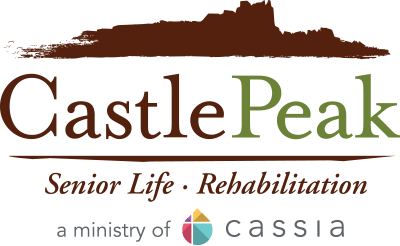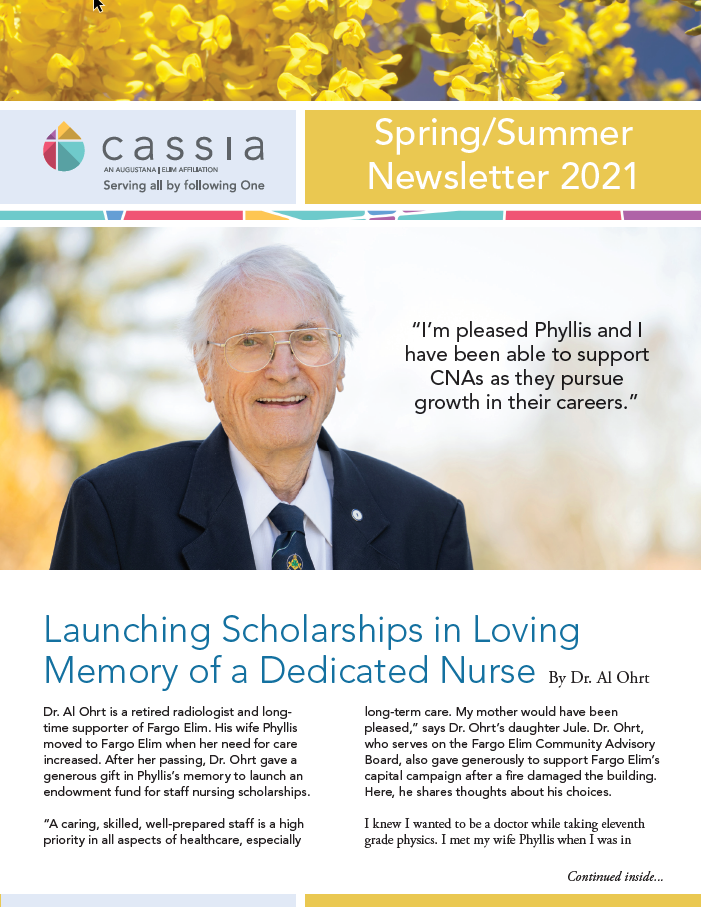An old farmer once said, “Everything you do in other seasons is an investment in winter.” When the radio clicked on this morning I heard that we will gain minutes of daylight, after the solstice, as we make the uphill journey from the winter towards spring. What have I stored up during times of light to get me through this winter? I walked down the hallway to look out the east window. It was the same as when I went to bed, dark and gray. I longed for rosy fingered dawn, springtime, and that irritating 4 a.m. chirp of the birds.
For those of us working in a windowless environment, we experience days without seeing the sun. This affects some people more than others. It is estimated that one in ten Minnesotans suffer from Seasonal Affective Disorder (SAD). The lack of light throws off our circadian rhythms. You may feel “blue” or want to remain in bed and realize that light is a profound ingredient in life.
People with dementia frequently experience a group of symptoms commonly referred to as sundowning syndrome. A person may experience increased confusion or agitation. The reason for this is not known but many people working in the field of senior care think it is a reaction to the lowered light, fatigue from the day, or the increasing shadows in their environment.
Persons with dementia work very hard to figure out their world. Neurologists suggest that a person with dementia should be exposed to a period of natural light during the day. Professionals also recommend paying close attention to the sleep/waking patterns of older adults. It may be tempting to let a person with dementia sleep late in the morning, after all, it allows time to get things done in the house and a period of time you have to yourself. Also, it may be difficult because people with memory loss often do not want to get up in the morning. At Augustana Care Open Circle, we know that transitions can be challenging. When our caregivers move from the morning program to exercise without clear direction, members may feel unsettled and lost. After lunch, members often feel like it’s time to go home, an understandable reaction to completing a meal away from home. We also notice the late afternoon can be stressful because some have forgotten that they will be going home.
When you are facing what could be sundowning syndrome, the first step is to acknowledge that it is a natural response within the disease process. Our intellectual selves can override the shifts in light and shadow. People with dementia can only feel it. It may be a time to establish a quiet ritual such as:
- Music and tea
- Time with a pet
- Turning on the lights in the house
- Evening devotion
- Walking the dog
Be patient, routines require repetition to be established. If you think your care partner is experiencing seasonal affective disorder, full spectrum light exposure could help. There are many light therapy products available for home use. Augustana Care Open Circle also offers care consultations that are targeted to the needs and values of caregivers. Contact us if you have questions or need support.
We are all people of this earth. We travel around the sun in twenty-four hours. We feel differently throughout our day as the light and weather change. When a sunflower grows, it traces a path from east to west, a process called heliotropism. During the night, they slowly turn back to the east and await the rising sun. We too wait for the sun. Take stock, be strong.
The author, Patty Crawford, is the Center Manager at Open Circle of Apple Valley. She has been a part of Augustana Care for 41 years. Patty is also a sought after public speaker on subjects of ageing. She weaves her insight and research into meaningful presentations. Patty is a Master of Leadership graduate from Augsburg University.







